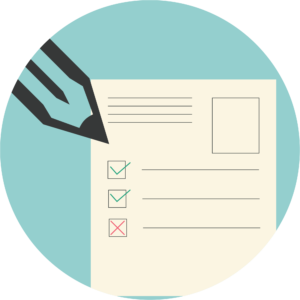
Poker has always enjoyed a lasting legacy in pop culture, whether in movies, music and now even sport with a number of prime athletes joining the rank-and-file of poker’s finest. The game’s mainstream popularity has experienced a significant boost in recent years following the broadcasting of the World Series on TV and the infamous Moneymaker Effect, meaning that local tourneys have sprung up in just about every capital city and more people are downloading poker apps than ever before. Texas Hold’em, commonly referred to in Japan as テã‚サスホールデム, is a game played all over the world and is one of the most famous card games to ever grace humanity.
Mastering the basics of poker is simple, but getting into the higher level strategizing is far trickier. No matter whether you tend to play casual games or high stakes tournaments with ambitions for the WSOP, there is always room to better your overall performance. Here are 7 tips and tricks you can learn to be your own greatest poker coach – and make good headway on the highway to success.
#1 Work On Your Poker Face
Most people learn this tip when they first start playing the game, but the overlying message here is important. You could have an amazing hand, but some tiny aspect of your facial expression could alert the rest of the table to this fact. Skilled poker players are also skilled people readers, so giving away as little emotion as possible whether you have a royal flush or a lowly pair can make a huge difference to how the game plays out. Practice your poker face at home in the mirror, implement that practice in your actual games and become the most elusive player at the felt. If you struggle with the confidence to begin with, try practicing during online games on sites like Bosbobet 88 with the mirror in front of you so you can get used to how you react to certain hands.
#2 Read The Room

Each draw may be different, but the people sitting across from you stay the same. Are they prone to bluffing or folding? Are they impulsive with their chips? They may have stone-like facial expressions (or a really great pair of shades) but their behavioral patterns and body language may give away their strategy. You need to be paying attention to them as much (if not more) than your cards. Look for tells, like a raised eyebrow or shaky hands. These can be a dead giveaway that one of the other players is about to do something bold, or drastic. Paying attention to these details gives you the power to sway the game in your favor.
#3 Lay Off Alcohol
Alcohol has numerous effects on the brain, including hampering memory and lowering inhibitions. Any reckless decision-making as a result of the affects of alcohol is just bad for business, as football agent Leigh Steinberg explains. And yet, even if casinos don’t ply players with free drinks – which they often do – alcohol is traditionally a staple of poker nights everywhere.
Fighting this temptation can be difficult, but consider the advantage: while everyone around you is losing control you will be completely sober, alert and with all your wits about you. If you do choose to drink, make sure to pace yourself and don’t get carried away. Your chances of winning will be far greater, as will those of not getting a hangover!
#4 Take Poker More Seriously than a Game
The operative word in the last paragraph was “business” – the more you treat poker like a business, the more you’ll be protected from the swings and make money rather than lose it. Dusty Schmidt’s book Treat Your Poker Like a Business was one of 2012’s hottest releases for aspiring players, explaining that adequately preparing for games and ensuring you have a bankroll are essential to enhance gameplay and minimize damaging losses. Treat your game like a business: do your homework, eliminate urges to take uncalculated risks and watch your earnings rise.
#5 Be More Patient

Although it’s easy to be impulsive when playing poker, it rarely pays off. Taking a chance on a seemingly bad hand can result in a lost hand, and lost chips. It can also make your every move predictable to the rest of the table. Do not be afraid to fold when needed, and do not call people’s bluffs every time; you will stay in the game longer and have more of a chance to reverse your fortune. It is easy to get ahead of yourself when you are on the losing end of multiple hands, but patience is key to success.
#6 Seek Out Other Players
The Internet is a tool that, when used well, can bring people together. You can find communities with like-minded interests in every hobby imaginable, including poker. Many people like to use services similar to Global Poker (about Global Poker) to find more like-minded individuals who enjoy poker. Other players can possibly give you insight to the game that you wouldn’t otherwise have; this is precisely the means by which emerging generations of players such as Jason Somerville, Andrew Seidman and Vanessa Selbt have attributed their initial success.
#7 Know Your Odds
Many poker players consider lady luck as the ultimate deciding factor if someone is successful or not, but one crucial factor they’re not considering here is math. This goes beyond knowing a pair of eights beats a pair of fives: knowing the probability that a certain card will come up or be player will allow you to better gauge your odds of winning and help you decide whether to fold or not. There are algorithms associated with poker that may be hard to take in for some, but if you want to get better at predicting what cards are more likely to come up, reading up on them is a great way to do it. Understanding the math of poker will help anyone become a more confident and informed player. Talking of confidence, if you want to practise your gambling skills without a cash or bonus balance, why not try some online demo games before you play the real thing. This is a great tip, particularly for beginners!
There are many ways you can go about upping your game. Staying sober, keeping a lid on your emotions and mitigating risks will all help you stay in the game longer, as well as keeping you sharp and improving your chances of actually walking away with money. These 7 tips are rules that professionals live and swear by, and the best part about it is, with an abundance of material available online, you can easily teach yourself all of them – for free.
